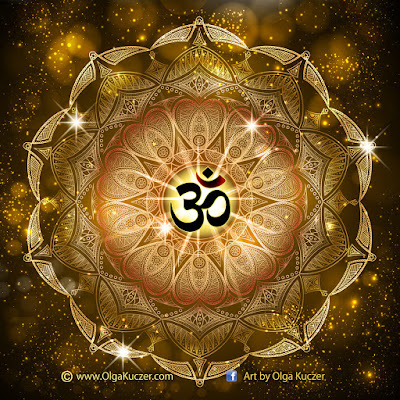Meaning of, the 'Republic of India'.
 The British did not give Independence to India and Pakistan on 15th August 1947. We merely became the 'Dominion of India', a country that still had King George VI as the sovereign. Mistakenly vast majority of the the Congress leadership and the Indian public thought and still think this was freedom. Why not? Our history books remain silent on these important facts.
The British did not give Independence to India and Pakistan on 15th August 1947. We merely became the 'Dominion of India', a country that still had King George VI as the sovereign. Mistakenly vast majority of the the Congress leadership and the Indian public thought and still think this was freedom. Why not? Our history books remain silent on these important facts.
A 'dominion' is an autonomous community within the British Empire but united by a common allegiance to the Crown. India continued to be ruled by the British monarch and his representatives, headed by the Governor General, Lord Mountbatten. Nehru was appointed Prime Minister and ranked fourth in the hierarchy of government. Top leadership of all key institutions including our army, navy and airforce were British officers still loyal to the Crown.
An unwilling Britain freed India from her colonial clutches only under duress, but they had plans to return. They divided their 17 provinces into three distinct parts between India and Muslim Pakistan and left approx.600 kingdoms which occupied half of India to choose to join either of the two new countries or remain independent.
The British approach was that, Indians would not be able govern themselves and that the British would soon be back as saviours at the request of India.
It was the will and capabilities of the Iron man of India Sardar Vallabhai Patel assisted by V.P. Menon, who convinced most of the kingdoms including Kashmir to accede to what we now know as a pluralistic and secular India.
In the meanwhile, Dr. BR Ambedekar led a committee that drafted the Indian constitution.
India remained a 'Constitutional Monarchy' until 26 Jan 1950, when we adopted our own constitution, replacing the Queen by our own Head of State Shri. C. Rajagopalachari. This day is important because this is the actual date of our re-independence and not Aug 15 1947.
We may have become free but we still carry the burden of much useless baggage from the past. An idea can be obtained from a clarification given by Dr. Ambedkar in the Rajya Sabha on 2nd Sept 1953 that,
“People always keep saying to me: ‘Oh, you are the maker of the Constitution.’ My answer is I was a hack. What I was asked to do, I did much against my will.
My friends tell me that I have made the Constitution. But I am quite prepared to say that I shall be the first person to burn it out. I do not want it. It does not suit anybody….”
Pakistan remained a British dominion right up to 1956 before becoming that unsustainable entity called 'The Islamic Republic of Pakistan'. Whose history has validated the theory that there is no room for pluralism, secularism and tolerance within a theocracy.
 In fact Aug 1947 should be remembered more as a national tragedy rather than a celebration.
In fact Aug 1947 should be remembered more as a national tragedy rather than a celebration. A shocking lack of concern for the people by the leaders blinded by their lust for power resulted in a massive genocide between the religions of India.
Our descent into depravity and insane savagery. A million persons killed, countless more raped, maimed and scarred. As per UNHCR estimates, 14 million Hindus, Sikhs and Muslims were displaced during the partition; it was the largest mass migration in human history.
___________
References
1. Did India Really Become Independent On August 15th, 1947?
2. History of the Republic of India
3. ‘Why August 15 should not be Independence Day’ by Sreejith Panickar
4. Reminiscences of the Nehru Age by M. O. Mathai
5. Jawaharlal Nehru and the Mountbattens
6. ‘Introduction to the Constitution of India’ by Brij Kishore Sharma
7. Dr. Ambedkar: Life and Mission by Dhananjay Kee
Some Interesting Related Information
A Republic (Latin: res publica) is a form of government in which the country is considered a "public matter", not the private concern or property of the rulers. No monarch and no inherited right to rule, and elected individuals represent the citizen body, known as democracy, and exercise power according to the rule of law (a constitution).
___________
“Jawaharlal Nehru presents his humble duty to Your Majesty and has the honour to submit, for Your Majesty’s approval the proposal of Your Majesty’s, Ministers in the Dominion of India that Sri Rajagopalachari, Governor of West Bengal, be appointed to be the Governor General of India on the demission of that Office by His Excellency Rear Admiral the Earl Mountbatten of Burma…”.
He had to affirm allegiance to King George VI, Emperor of India and also to affirm that he would well and truly serve “Our Sovereign”. Nehru was suddenly confronted with these. He had no choice. He suppressed his embarrassment and extreme annoyance and went through the affirmation of allegiance and affirmation of office which read as follows:
Form of Affirmation of Allegiance
I, Jawaharlal Nehru, do solemnly affirm that I will be faithful and bear true allegiance to His Majesty, KING GEORGE THE SIXTH, Emperor of India, His Heirs, and Successors, according to law.
Form of Affirmation of Office
I, Jawaharlal Nehru, do solemnly affirm that I will well and truly serve our Sovereign, KING GEORGE THE SIXTH, Emperor of India, in the Office of Member of the Governor General’s Executive Council, and that I will do right to all manner of people after the laws and usages of India without fear or favour of affection or ill-will.


Comments
Post a Comment